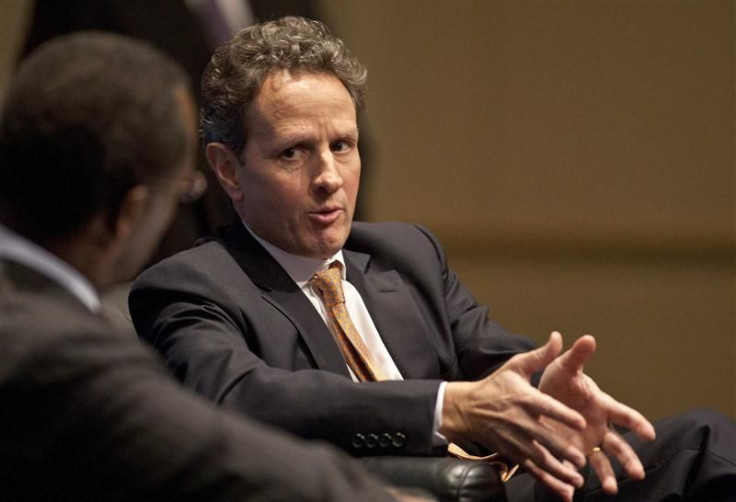In Beijing, Geithner Repeats Call For Stronger Yuan

US Treasury Secretary Timothy Geithner said Thursday that China should allow its currency to increase in value against the dollar to support the reforms in the country's financial system.
Speaking at the start of the US-China talks in Beijing, Geithner said a stronger, more market-determined renminbi (yuan) will help reinforce China's reform objectives of moving to higher value-added production, reforming the financial system and encouraging domestic demand.
Geithner's comments followed China's decision last month to expand the yuan trading band against dollar by 1.0 percent on either side on any day from the previous limit of 0.5 percent.
China's exchange rate policy is a major concern in terms of its trade relations with the US. In spite of the many promises to diminish the control on the currency and to move closer to full convertibility, Beijing has done little in this matter to satisfy the US.
The People’s Bank of China does not just intervene by determining the yuan’s opening fix each day. It is an active participant during trading too. Although the US has attempted to change the existing dynamics by asking China to strengthen the yuan against the dollar, China is aware that the cost of Chinese labor would rise relative to that of the US in the global marketplace if that were to happen.
Other countries have supported the US regarding its stance on China. They include Japan, where the cost of labor is becoming a critical concern. It is expected that the wider band will lay the groundwork for a more market-driven and volatile exchange rate regime.
At the moment China's international influence is growing and the momentum will continue for some time. This comes at the expense of the US and Europe, but neither geopolitical entity has the means to reverse it. The US relies on China for its treasury distribution and trade and Europe depends on China for trade and future funding needs.
Meanwhile, the wider band announced last month signals that the policymaking process in Beijing continues to function, contrary to some suggestions that in-fighting ahead of the leadership handover was resulting in policy paralysis. There have been recent reforms affecting the yuan and the broader financial sector, all of them pointing in the direction of more liberalization policy in China.
© Copyright IBTimes 2024. All rights reserved.











